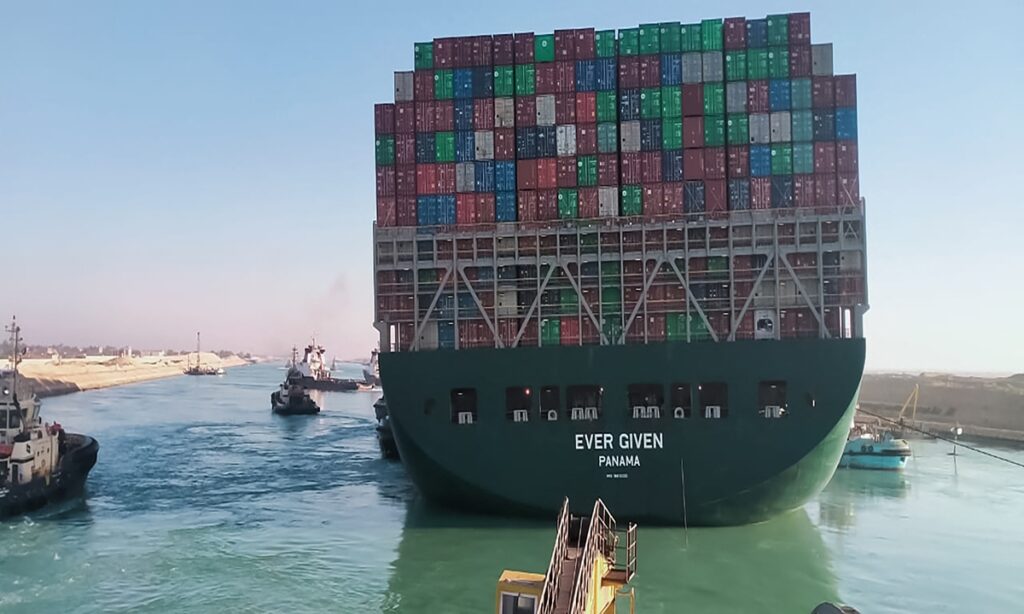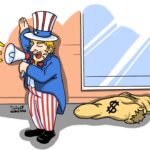Disruptions caused by the Suez Canal blockage, which interrupted a key transport artery between producers in China and customers in Europe, led many Chinese exporters to diversify their logistics channels via sea, air and land. It was yet another test, following the COVID-19 pandemic, of the resilience of supply chains in China.
However, despite widespread relief after the ship was refloated, concerns quickly arose over European countries’ reliance on supply chains in China, with the canal jam seen as a lesson.
The bottleneck in one of the world’s busiest trading waterways following the grounding of the ultra-large Ever Given raised new alarms in economies relying on trade with China and other Asian economies. The incident underlined the need to diversify supply chains, especially after the mayhem caused by lockdowns during the pandemic, the South China Morning Post reported on Monday.
The impact of the blockage may cause disruptions in China’s synthetic rubber industry, which imports raw materials from Europe. Likewise, copper cathodes from Europe, which are used in the production of rechargeable batteries such as lithium-ion batteries, could face a supply shortfall, the report said.
While the actual fallout of the canal blockage is unclear, sources at several domestic businesses told the Global Times that they experienced few problems, although they did have to scramble to ensure that much-needed goods ranging from electronic devices to toys and other items got to European destinations.
In many cases, they used other shipping options including the China-Europe cargo train service or ships that detour at the Cape of Good Hope in South Africa.
Since hundreds of ships were held up by the week-long blockage, industry analysts said it could take weeks or even months for the canal jam to be fully resolved.
“We have diverted some of our goods to other options. Trains can only carry a much smaller volume of goods than ships, but this is still a good option because it’s faster and cheaper,” said a manager with a Guangdong-based small home appliance producer surnamed Han on Tuesday.
European clients really need many products as the supplies of some – such as razors – can only last for a few months, said Han.
A source at a large domestic electronic device producer told the Global Times on condition of anonymity that demand has been rising, with orders backed up until the second half of the year. Most of the orders came from clients in European countries such as Germany and the Netherlands, even as the canal jam cast a shadow of uncertainty over shipping.
His company’s confidence lies in the leading position of its products in the world market. All of its technologies are proprietary and the raw materials are sourced domestically, the source said.
The EU has 103 product categories where it relies heavily on China, including electronic products, chemicals, minerals, metals, drugs or medical products in strategic industries, a study by the Mercator Institute for China Studies showed, the Sputnik news agency reported on November 21, 2020.
The situation reflects mutually beneficial market choices, industry insiders said, and those who would use the supply chain to target China are politically biased.
Reports of some European businesses looking to diversify operations outside China are not new.
China’s measures to halt the spread of COVID-19 disrupting the global supply chain, the South China Morning Post reported in February 2020, citing a European business group that warned that foreign businesses may be forced to look elsewhere for supplies.
“Foreign companies pick China because of many key business factors including a huge market and low production costs, which will not be changed by incidents like the canal jam,” Bai Ming, deputy director of the international market research institute at the Chinese Academy of International Trade and Economic Cooperation, told the Global Times on Tuesday.
Instead of easy talk about diverting supply chains from China to elsewhere, Bai urged Chinese companies to think about diversifying their supply chains more creatively.
This picture taken on Monday from a nearby tugboat in the Suez Canal shows a view of the Ever Given, a Panama-flagged cargo ship, as it begins to move. Egypt’s Suez Canal Authority said on Monday the Ever Given container ship, which has been blocking the crucial waterway for nearly a week, has been turned in the “right direction”. Photo: VCG



